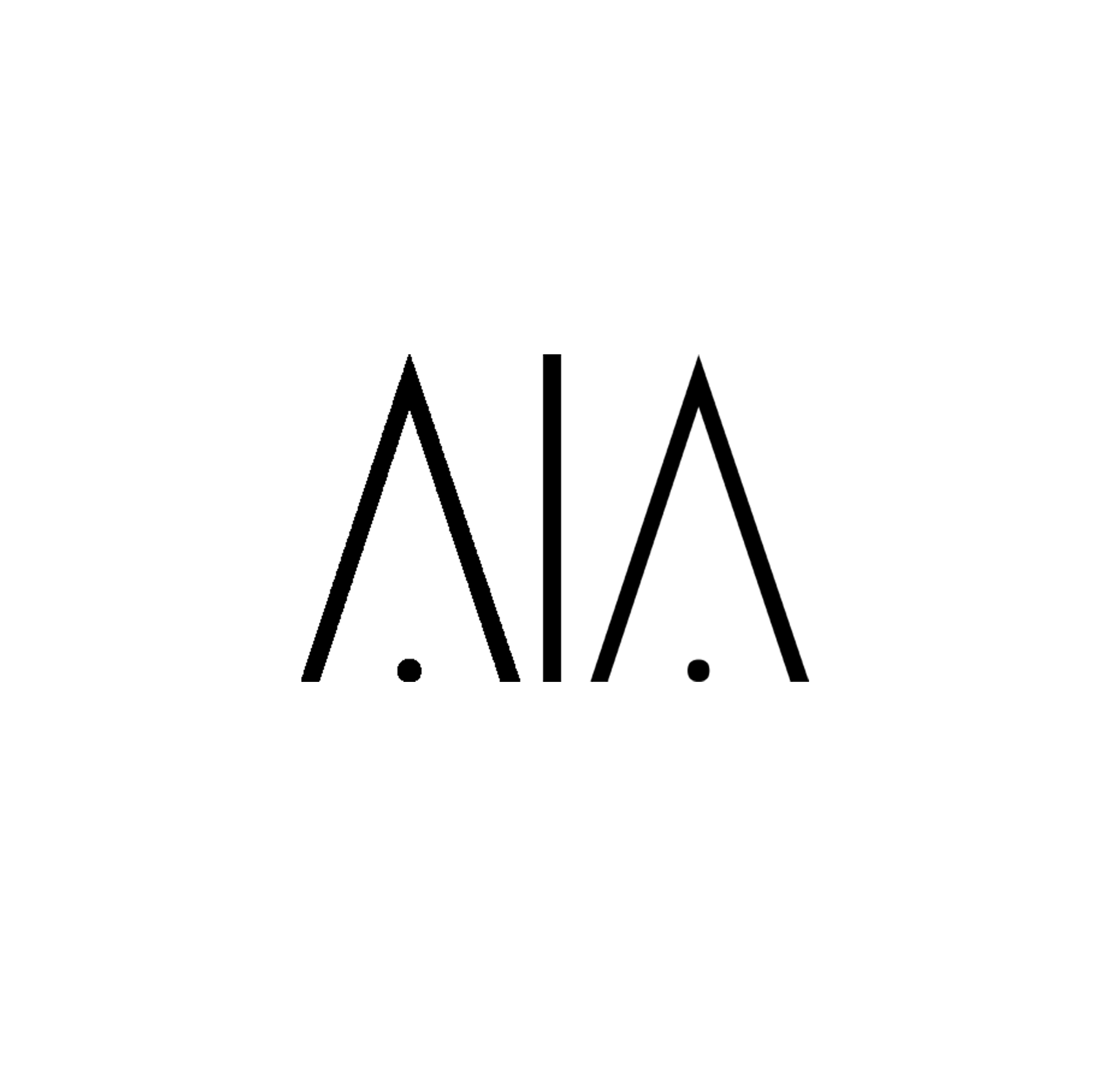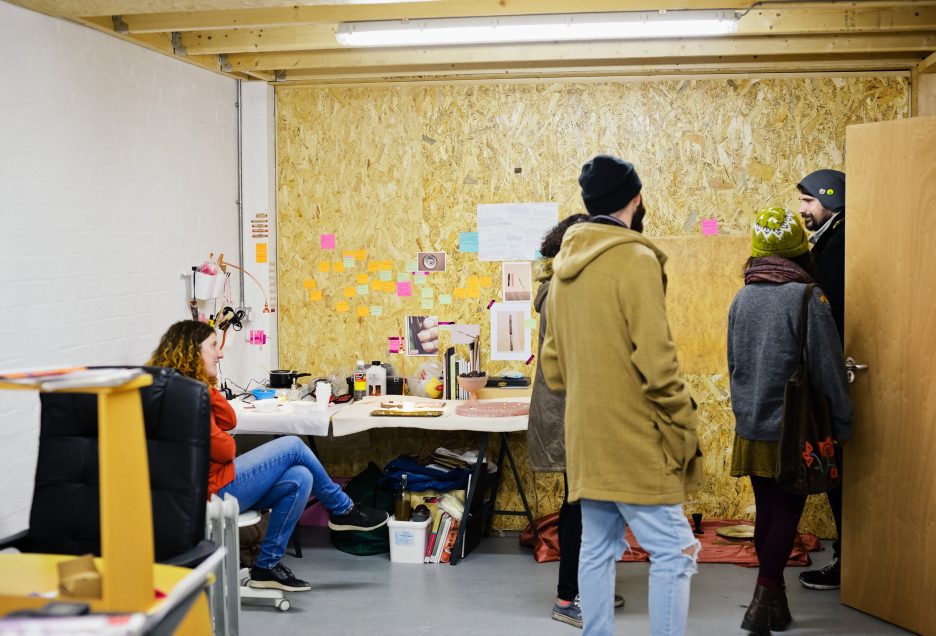Kim McAleese: On City Infrastructure, Current Ecosystems and Space for Artists.
Kim McAleese, Programme Director at Grand Union on Birmingham infrastructure, current ecosystems and space for artists.
Grand Union is a gallery and studio space in Digbeth, Birmingham. We set up about 9 years ago and have been operating here since then because we felt really passionate or at least we identified a real lack within the infrastructure in Birmingham. There was a founding group of artists and curators who just wanted higher quality studio space, a space where they could produce, where they could think, where they could just be. So we took over this building in Minerva Works and we now have three of the units, but at the very beginning we only occupied two and everything was kind of purpose-built.
We currently have 22 artists here in the studios, plus we have a ceramics facility, so we have expanded somewhat, but another really important part of Grand Union was to have the project and gallery space, which was driven and developed by director Cheryl Jones. Cheryl has always been very committed to supporting artistic and curatorial practice in the city, passionate about creating a space where people could kind of experiment with production.
So we have lots of different types of exhibitions - from structures and a vast public programme developed in dialogue with a local, incredible architectural firm, Intervention Architecture to projects like PROTOTYPE that we did with you [MAIA], sculptural works, painting, performance; we try and have quite an intense and very public programme. The other programs and exhibitions that we might have, there are certain sculptural elements we have like painting, performance, we have all sorts of things and as well as that we try and have a quite intense and very public program.
I think over the past eight to nine years, we have had between 250 to 270 artists that have been part of our programme. A lot of that has been new commissions, so that tends to be artists we work with in the gallery space, but then obviously we have a public program with many more writers, artist and curators that also feed in and our studio artists that we provide a space for too. There are hundreds of artists and curators that we work with every year. For example, I have curatorial staff who work with me, but then I have curators-in-residence who will pass through Grand Union. I also run an alternative education program for curators every couple of months. About 20 emerging curators will spend time in the city, so I’ve been thinking about your Art Hotel project, as we are constantly hosting people and trying to provide a space for people. Alongside that obviously you have to think about where they’re staying in the city, how they get here, what they are doing and how you integrate them a bit more into the city if they are here for a short amount of time. That is always a difficulty and when we have so many people passing through, where do we put them or how can we be more generous hosts?
In terms of provision, I think there can always be more space. As someone who travels to different cities to see artists and visit other spaces, you can see provision in different places, so I think we could have many more studios to give workspace to artists. I’m also interested in live-work spaces that I’ve seen work really well in other cities, thinking about affordability and how we retain talent and energy in a city.
I moved here to take up this role about 4 years ago. Whilst I’m not from Birmingham, I feel like I’ve integrated really well. I love the city. It’s the type of place that has something so strangely seductive about and the people are incredible. I love the organisations here, I love working with Grand Union and that means that I also really love to show it off and host people here. For a lot of our programmes at Grand Union, we’re thinking about the context in which we are operating but also how to bring people into that. We research that and interrogate it and how that can be articulated through artistic practice. Obviously, that takes resources and that takes time to bring people in, but in doing that, it’s always difficult trying to host people for a prolonged period of time, in a place they can live, work and research for weeks or months on end.
Your Art Hotel project really speaks to lots of our work and hopes. I think what’s really valuable is a dialogue and a conversation with people and for me, and my own personal life how I learn and how I take in the world and how I process information is very much with other people, I don’t like to do it in isolation. It is one thing sitting down with an academic text and understanding it and being able to process it but actually I feel like there is so much value in a spark in a conversation that you have with someone that is totally unexpected. We need space and time for some things to be mediated and presented and some things to happen instantaneously.
I think that’s the real value in something like Art Hotel, where you have the opportunity to come together with people you mightn’t necessarily ever have encountered, where you can stay there for a certain period of time, where you can present things, and I think that there isn’t really anything like that that exists in Birmingham. I think there is a real value in having a space where people can just come together interact with one another across disciplines, across art forms, I mean who knows? The conversations you have with people when you get in a room, that’s a real valuable tool in learning about the world and learning about yourself and being able to make Art and progress things. So that I think would be an incredible resource.
On a real practical level, having a place where people would be able to stay would be amazing and somewhere they could potentially be hosted, I guess for me there would be a real opportunity to work together and co program things and work with artists across different art forms that maybe Grand Union doesn’t normally have the opportunity to work with, because we don’t have the facilities to host them or maybe have the skills or knowledge or resources that maybe you might have or another organisation who would be using Art Hotel might have. I think there’s a real opportunity to work across the city and across organisations in a more cohesive way. I think we are quite good at doing that in Birmingham, but sometimes maybe we are a little bit siloed within our art forms.
Sometimes we just need something really quick, maybe there’s an artist who is coming up to do a talk and wants to stay over just for a night. But then, for example, I have an artist duo currently here intermittently for longer durations and they will be doing a project, working with us to research for the larger capital project, Junction Works, which is going to roll out over the next however many years. So there’s an immediate need for them to be here and to start researching Birmingham and to understand how the city works, how
Grand Union works and to understand people here. This will be a conversation that will last for the next five to six years so I guess a flexibility with physically housing people but also it could be a real catalyst for connecting people as well, depending on what the infrastructure is. To give the example, they are really interested in the history of “to save the British empire” and how that manifests in geopolitical movements and how that manifests in food. They are going to be looking at the Junction Works building up the road, but they will be looking at the canals and the waterways so they potentially might want to be in contact with ecologists or historians, and potentially Art Hotel could connect them to different people in the city that have historical knowledge, there’s loads of possibilities!
For context, the building we are currently in, Minerva Works, was part of a plot that has been purchased by Homes England. They have a mandate to build lots of residential accommodation. This is one of the only non-listed buildings on the site, so it makes sense that it would be one of the first ones that they would be able to develop. Once we found that out, we have been in dialogue with them about us potentially taking on a building which is just further up Fazeley St, called Junction Works. It is the old canal offices, a Grade II listed building which was constructed in about 1850, and has gone through lots of different guises and had lots of different owners over the years. What we proposed to our landlord was that we could take that building over, renovate it and we are talking to them about potentially gaining access to a 100-year lease on that. So for Grand Union as an arts organisation with a current temporary lease and agreement with the landlord, it would mean that we could really put our roots into Digbeth and continue to do what we are doing. And that’s not just supporting artist and curators and lots of creative people, its trying to be a good neighbour to people in Digbeth. As well as thinking about the different community organisations we work with like Crisis and The Feast and Interfaith Youth Group and the other relationships that we have. In the face of rapid regeneration over the next 7-10 years as HS2 will shift the landscape and architecture of Digbeth, how can we be a good neighbour? It’s the creative community trying to have a foothold in that and to be a really important part of it so it’s not just commercial development. We’re all trying to maintain what is so special about all the different industrial and creative spaces here. We’re hoping that it’s an opportunity for us to remain and be present and to help other creative organisations to stay here.
So if we manage to take over that building, it will mean that we have space for studios, gallery space, events space, a café space and also we will have office space for arts organisations that might need their archive and to be working all year round, but aren’t necessarily in need of a huge building to presenting something every week. The aim is to have lots of different spaces that we would intentionally let to people at an affordable rate, being aware and mindful of how the area is going to change so that creative people can stay here.
In Digbeth, there’s a precariousness and everyone is really aware of it. I suppose one the great things is that Arts Council England have invested in lots of organisations in the area, so lots of us have been invited into the National Portfolio, meaning we have core funding for the next 4 years. But that doesn’t last forever and the reality is in the next 4 years, the landscape is going to look radically different. So we have a real job to come together and work together to try and figure out how we can remain strong in the face of that, and maintain our autonomy here without being absorbed by it or forced out.




